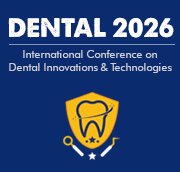Title : Impact of internet addiction on academic performance of dental students of Bhubaneswar, India
Abstract:
Internet Addiction (IA) causes serious health effects and interferes with regular tasks. The objectives of the present study were to assess the level of internet addiction and its impact on academic performance of undergraduate dental students of Bhubaneswar. A cross-sectional descriptive survey was steered among 814 undergraduate dental students (representing first year through internship) in Bhubaneswar, India. Internet addiction was assessed with Internet Addiction Test (IAT) developed by Young that consisted of 20 items rated on a 5-point Likert scale. Google forms were used to collect the data. Statistical tests like Chi-square, Kruskal-Wallis, and Spearman correlation coefficient were used to analyze the qualitative and quantitative variables respectively with the level of significance set at p ? 0.05. The prevalence of Internet Addiction was found to be 27.5%. Interns showed the highest mean Internet Addiction (57.91?10.71) score. The proportion of addicted students were found to be higher in males 74 (31.4%) than females 150 (26%). The mean scores for individual domains were overuse (16.31?3.64), non-restraints (7.77?2.66), inhibiting flow of life (9.52?3.05), emotional state (11.25?2.86) and dependence (10.47?2.53). A correlation coefficient (Spearman’s rho value of -.167) indicates a negative correlation between internet addiction and academic scores which was statistically significant (p=0.001). This study revealed that the use of internet for varying purposes is eventually leading to its addiction and affecting the academic performance of students. The affected students need early intervention and control over internet usage.



